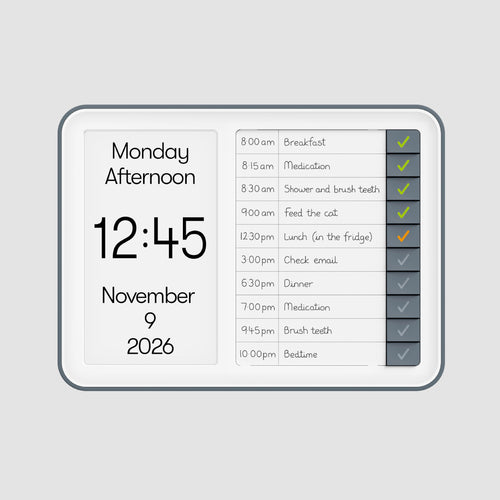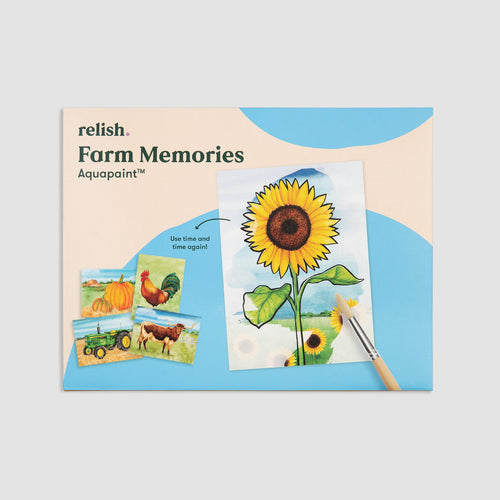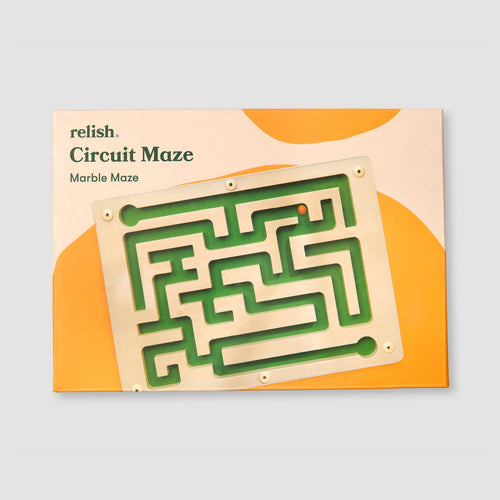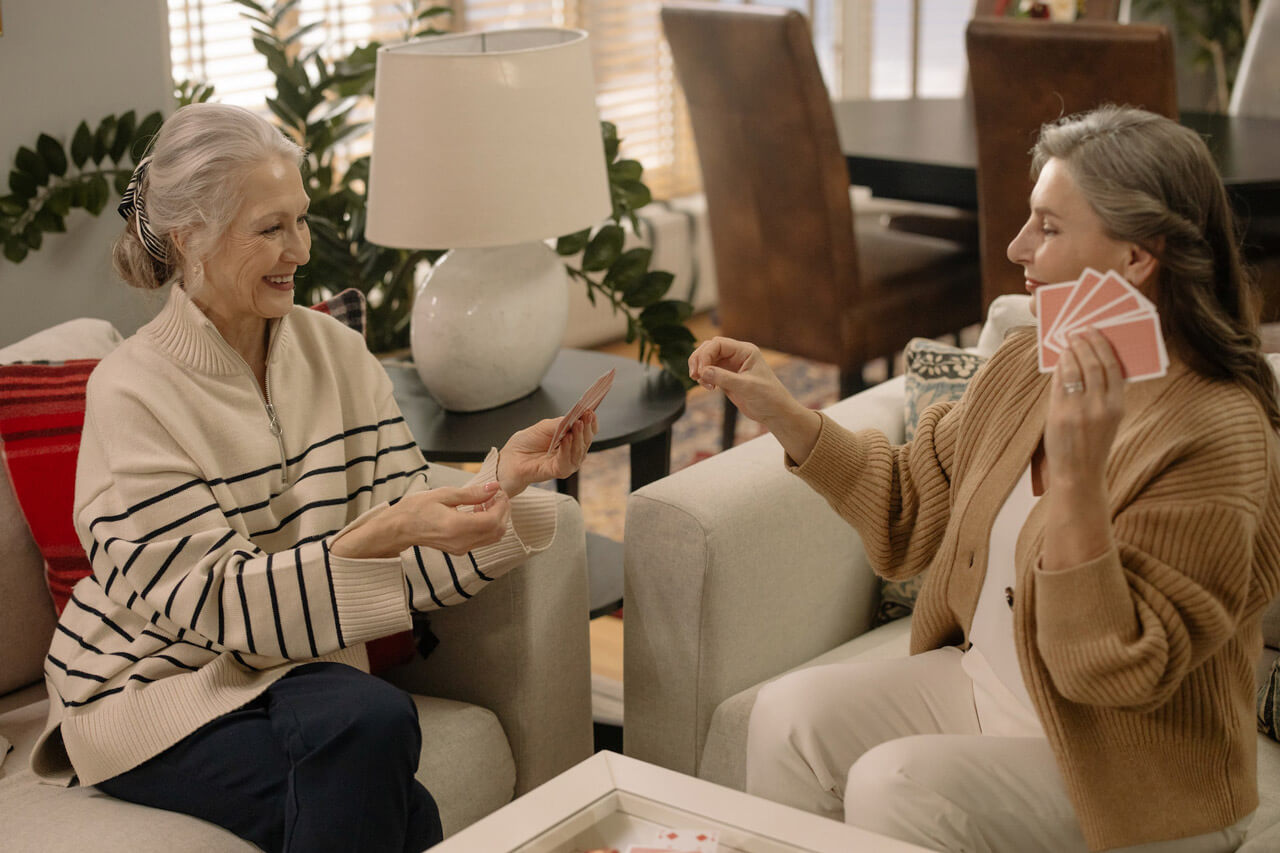Those with dementia have difficulty thinking, remembering and reasoning due to a loss of cognitive function, which can make ordinary activities or previous hobbies more challenging. However, with some thought and planning, you can still enhance a family member or loved one's quality of life and engage them with dementia-friendly activities.
Spending time together in the middle or late stages of dementia can be beneficial and fun. Think about what your loved one likes to do and what they can do.
Here are some ideas to get you started.
Activities inside the home
Here is a look at some wonderful ideas for dementia activities you can do indoors.
1. Arts and crafts
Creating art is a fun activity that allows people with dementia to express themselves. For example, painting and colouring sets designed for a person with Alzheimer's may keep them engaged and reduce stress.
Pottery classes and sanding wood are also enjoyable dementia group activities. It engages multiple senses while relieving stress and improving focus.
It's best to keep crafts simple. For example, making bead necklaces or decorating a bird feeder provides great satisfaction but is also easy to do.
There are also great DIY-related products available for other arts and crafts ideas. You might consider an antique car puzzle or a handyman magnetic picture board.

2. Knit or crochet
Knitting or crocheting are common activities for nursing home residents with dementia. It's enjoyed by individuals or in a group activity setting.
Knitting and crocheting offer other benefits like:
- Reduced anxiety and depression.
- Slowed progression of dementia.
- Improved sense of well-being.
- Fewer feelings of isolation.
Also, knitting may help distract from chronic pain. It's also one of the common activities in care homes for dementia. Residents can continue knitting and crocheting after their sight and strength decrease.
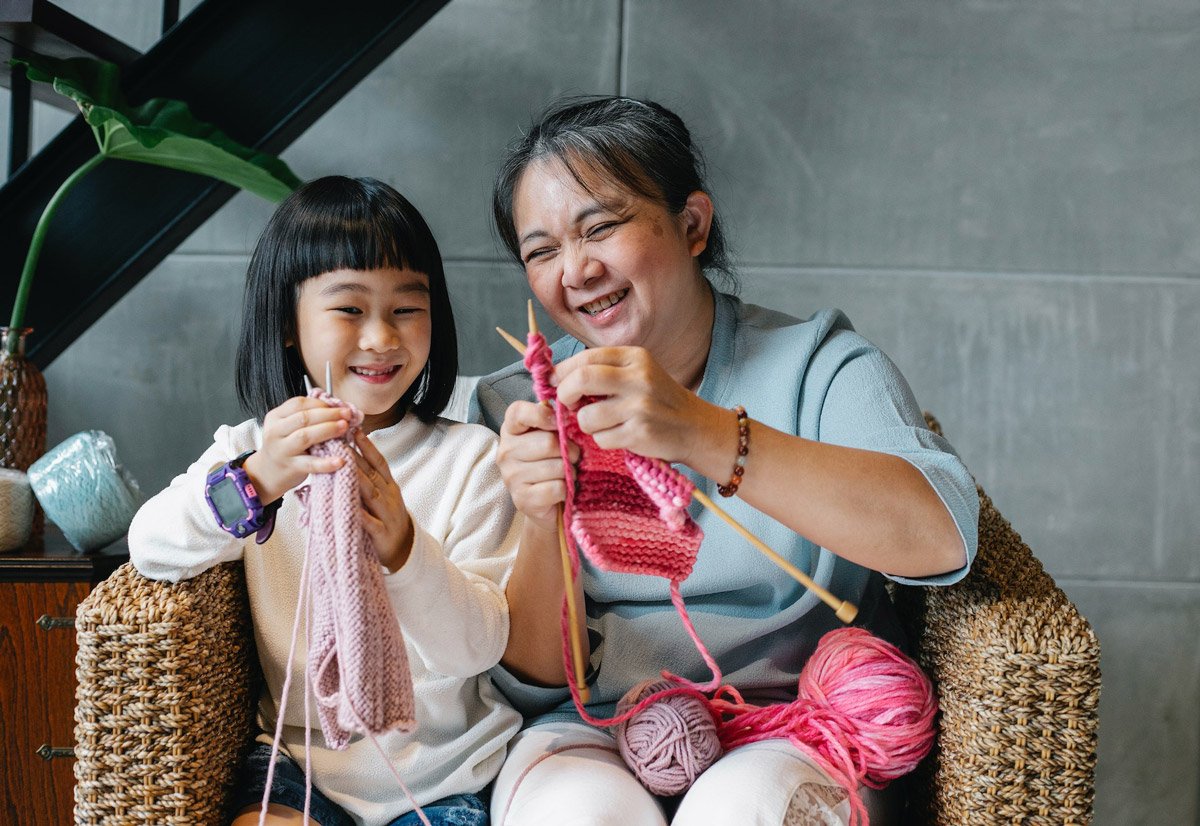
3. Spend time with animals
When you think of what activities people with dementia can do, it's vital to remember the bond between humans and animals. For example, a cat who loves a human's touch meets someone that enjoys feeling their fur and the sound of the purring. It's a mutually beneficial relationship.
Petting, cuddling or walking an animal or robotic animal is therapeutic for people with dementia. A stuffed animal is also a good alternative. Your loved one may also enjoy visiting a petting zoo or volunteering at an animal shelter.
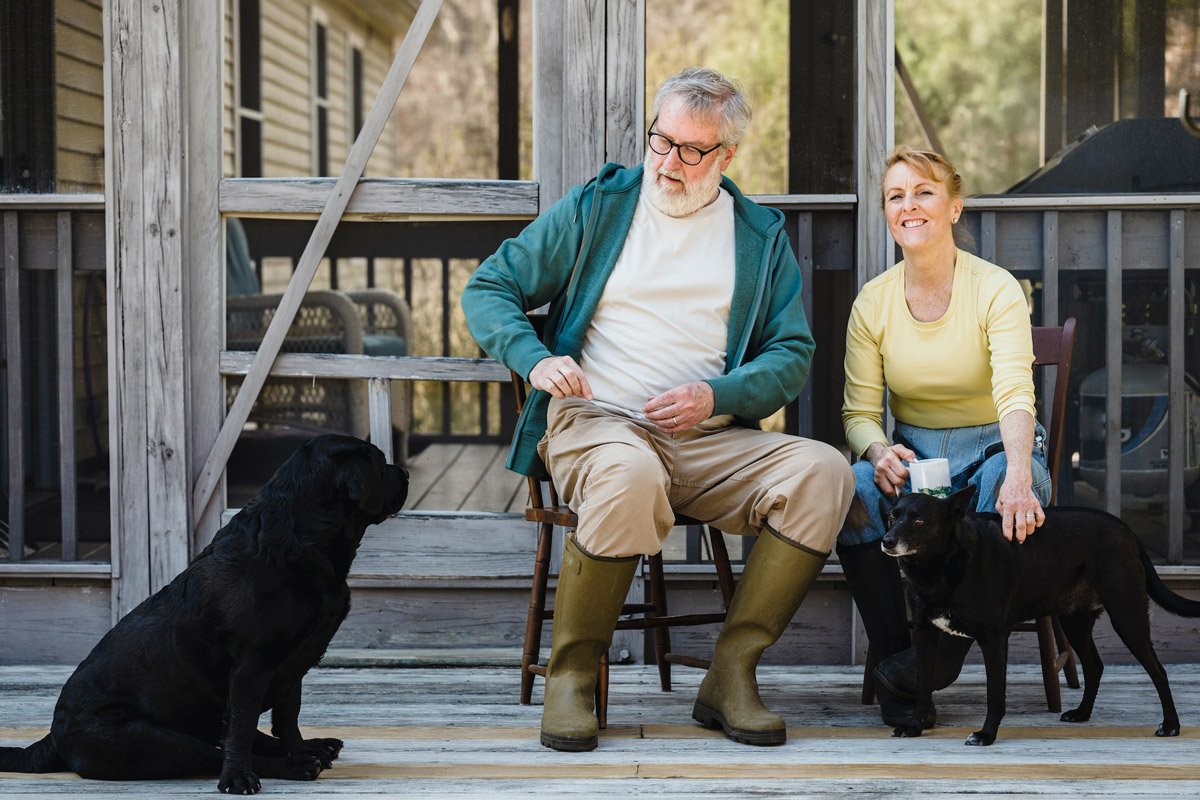
4. Jigsaw puzzles
Jigsaw puzzles are relaxing activities for people with dementia in care homes, long-term care, and at home. Those living with Alzheimer's and dementia benefit from the mental stimulation they provide.
Putting together the pieces provides comfort and helps with focus and a sense of accomplishment. A person with dementia can enjoy puzzles as a group activity or a quiet activity alone.
In the early stage of Alzheimer's and dementia, your loved one might be able to work 60-100-piece puzzles. However, when they advance to mid-stage dementia, it's best to use 35-piece or fewer puzzles.
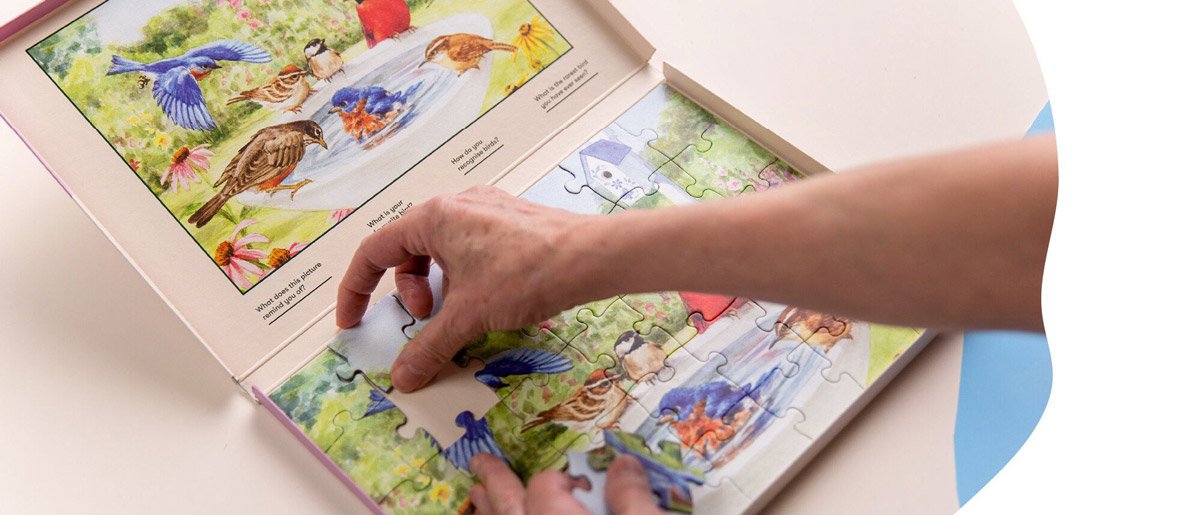
5. Look through old pictures
Viewing photographs might help people with dementia regain a sense of identity. It also helps them to:
- Stay engaged in the present.
- Create positive feelings.
- Feel more content.
- Be distracted when stressed or anxious.
Helping a loved one put photos into a scrapbook is also a supportive thing to do with them. Allowing them to reminisce about their past creates a sense of familiarity while providing comfort. Reminiscence cards are a great way to start chatting about the past.

Activities outside the home
Some things to do with someone with dementia outside the home include opportunities to become physically active and get fresh air.
6. Walk in the park
Walking is one of the most beneficial dementia activity ideas on this list. It's also one of the most popular activities in dementia care homes.
Taking a regular stroll may positively impact their physical and mental health. It also:
- Allows social connections among older adults.
- Gives nature lovers a chance to spend time outside.
- Provides structure and focus.
- Allows important time for letting off steam.
If your loved one frequently wanders from home, this may help keep them safe. For example, they might need to walk, so they go out unattended. Walking with them is much safer.
A person with dementia may also enjoy playing board and card games in the park. You could look into social groups that meet in public parks. Joining a group can foster social relationships.
Browse our dementia products for nature lovers here.

7. Gardening
Activities in care homes for dementia often include gardening. They are very therapeutic for their physical and mental health. In addition, research shows that working in gardens may improve brain nerve growth factors associated with memory.
Other benefits of gardening are:
- Exposure to sunlight helps improve bone health and sleep quality.
- Lowers levels of agitation and aggression.
- Provides a sense of community and ownership.
- Reduces stress.
- Building physical strength.
- An inexpensive way to stay active.
If your loved one isn’t able to garden, a great alternative is our garden scent and sound kit. It provides sensory stimulation typically enjoyed in outdoor gardens, such as the smell of cut grass and helps to spark positive memories.

8. Feeding the birds
Birds can naturally help people living with dementia interact with their environment. Outdoor activities like feeding or bird watching can revitalise a person physically, mentally and socially.
The healing power of nature works to:
- Improve depression.
- Promote positive interaction with care workers.
- Enhance well-being.
- Develop patience.
- Improve cardiovascular health.
You can attract birds to your community or home by providing the following:
- Food - birdseed, nuts, fruit, or nectar.
- Water - bird baths allow water to drink and bathe.
- Nests - nesting areas to raise young will help keep them around.
- Shelter - areas for birds to hide from predators and weather.
There are also excellent art kits for bird lovers who can't always get outside. Also, even resting outside watching birds instead of inside increases positive feelings, and the fresh air helps decrease tiredness.

9. Picnics & barbecues
Group activities for adults with dementia often include picnics and barbecues. It allows an opportunity to eat and socialise with others.
With dementia, friends aren't always easy to make. The more opportunities for socialisation, the better. Music can be incredibly beneficial for dementia, and dancing is another way to have fun. Also, grab a deck of cards and plan an easy card game to play while the food is cooking.
We naturally link food and sharing meals to intense emotions and great comfort. Helping a loved one prepare a nutritious dish safely for the event can give them a great sense of accomplishment.

10. Fruit picking
Visiting orchards and small farms allows those living with dementia to get fresh air and mild exercise. They can also stock up on healthy foods.
Again, this is another opportunity for your loved one to experience fresh air and sunlight while engaging their senses in the natural world around them. Spending time walking through the trees and fields is also an easy way to boost energy and positivity.
Children can also enjoy the activity. That quality time benefits both the child and the person with dementia. Doing activities together helps strengthen family connections while creating new memories.

Tips for planning a dementia-friendly activity
A person living with dementia may find planning their day difficult. They may need your help scheduling activities and picking things to do. Some tips to remember when planning include:
- Ensure the activity matches their ability.
- Help them get started.
- Try to do something at the same time each day.
- Decide if they should be alone or in a group.
- Watch them and see if they get frustrated.
- Ensure they find the activity enjoyable.
- Allow them to watch others do the activity if they prefer.
Please review our guide to the stages of dementia and Alzheimer's to learn more about what your loved one is capable of at their stage of dementia. You can also use our tool to help identify your loved one's dementia stage based on their symptoms.
Find The Perfect Activity for Your Loved One with Relish
At Relish, we have a wide range of dementia-friendly products for all stages of dementia, perfect for engaging your loved one. Our products include fidget toys, group games, and marble mazes. Visit our shop to see the full range.
